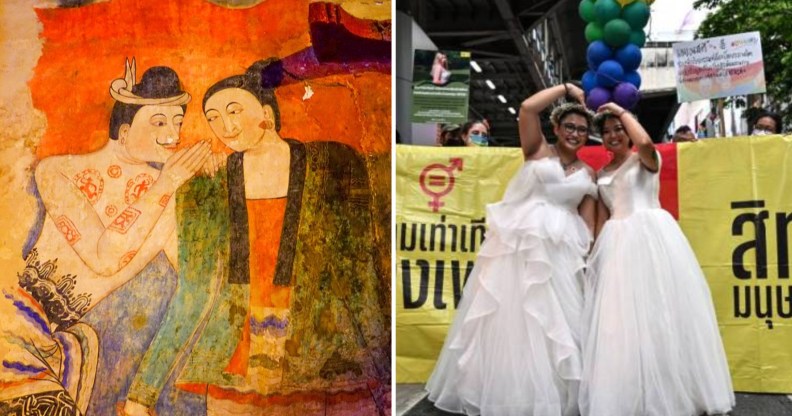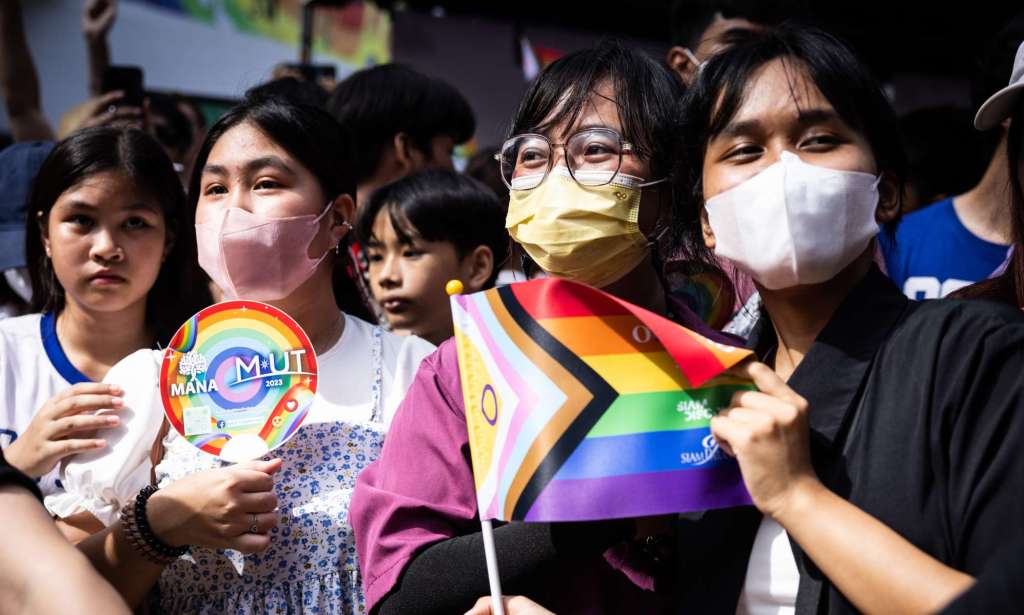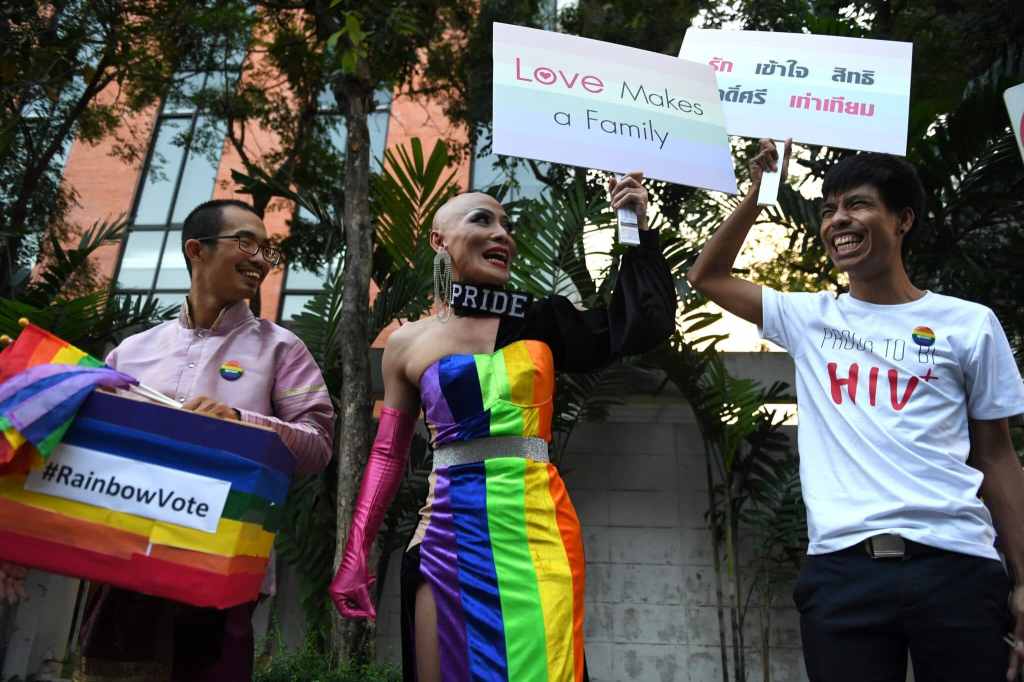As Thailand takes a step forward for same-sex marriage, we take a look back at the country’s LGBTQ+ rights history

On the left, a mural showing two whispering lovers from the temple of Wat Phumin in Thailand, on the right two brides celebrate forward progress in same-sex marriage in Thailand (Wikimedia Commons/Getty)
This week, we heard the positive LGBTQ+ news that Thailand’s Prime Minister Srettha Thavisin has approved an equality bill that would legalise same-sex marriage, which will be brought to parliament on 12 December.
However, the road to same-sex marriage in the country has, at times, been a rocky one.
In 2022, Thailand’s parliament debated four laws, including legislation aimed at granting same-sex couples marriage equality, but did not come to a final vote before the session ended.
The ruling Pheu Thai Party and its rivals all campaigned for marriage equality as a key objective in the lead-up to the May 2023 elections, positioning it as a central goal.
As the country moves closer towards legalising same-sex marriage, we felt it was a good time to take a look back at the story so far, and how Thailand came to this point.
A potted history of LGBTQ+ rights in Thailand

Private, adult, consensual, and non-commercial gay sex was decriminalized in Thailand in 1956. However, same-sex attraction and the trans community still faced a great deal of social stigma.
While queerness has been documented in Thailand since the Ayutthaya period (1351 to 1767), after Thailand transitioned from an absolute into a constitutional monarchy in 1932 the state propagated national culture by implementing very binary, heteronormative concepts of gender and sexuality. And things stayed like that for quite some time.
Changes to public opinion, acceptance of LGBTQ+ identities – and policy changes reflecting these changing attitudes – only began to take root in the country during the 1990s and, particularly, the beginning of the 21st century.
One breakthrough was the Penal Code Amendment Act of 1997, which set the age of consent to fifteen years regardless of gender or sexual orientation. Then, in 2002, the Ministry of Health announced that homosexuality would no longer be regarded as a mental illness or disorder.

The Thai government further expanded the definition of a sexual assault and rape victim to include both women and men in 2007, and a few years later (2015) they enacted a comprehensive anti-discrimination law, which covered sexual orientation and gender identity.
However, while Bangkok was named the second-most gay-friendly city in Asia in 2017 due to its LGBTQ+ dating scene, nightlife, openness and safety, Thai LGBTQ+ activists argued that rating did not reflect the inequality the community continued to face.
Also, Thailand does not yet recognize same-sex marriages, civil unions, or any other form of same-sex unions.
From 2011 to 2021, bills and draft legislations related to same-sex marriage and civil partnership have been debated in committees, the cabinet and parliament and sought approval from the Thai government – only to fall through.
In November 2021, the constitutional court even as far as to rule that only a man and a woman could register a marriage. One phrase even stated that one of the reasons for that is that members of the LGBTQ+ community cannot reproduce, as it is against nature. The verdict was heavily criticised by the LGBTQ+ community as dehumanising and homophobic.

On a more positive note, the group of bills concerning same-sex unions that passed their first readings in the Thai parliament in 2022 did end up introducing civil partnerships as a separate category but had not passed the final vote by the end of their session.
However, on 14 February 2023, Bangkok’s Dusit district became the first jurisdiction in Thailand to issue same-sex partnership certificates, which are legally non-binding compared to that of same-sex couples.
If the current draft law is approved by Parliament and receives royal assent, Thailand would become the third country in Asia after Taiwan and Nepal to legally recognise same-sex marriage.
Prime Minister Srettha Thavisin has also previously mentioned that he wants Thailand’s capital Bangkok to host World Pride events in 2028 if possible.
For more LGBTQ+ news from around the world, follow our dedicated Instagram account @PNPrideForAll
How did this story make you feel?

